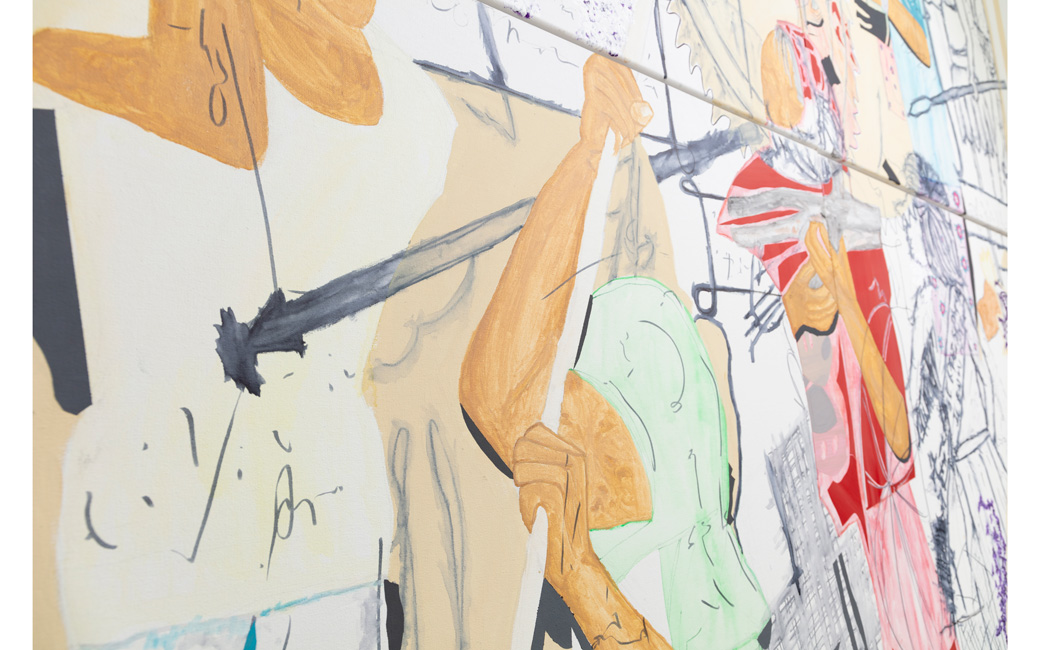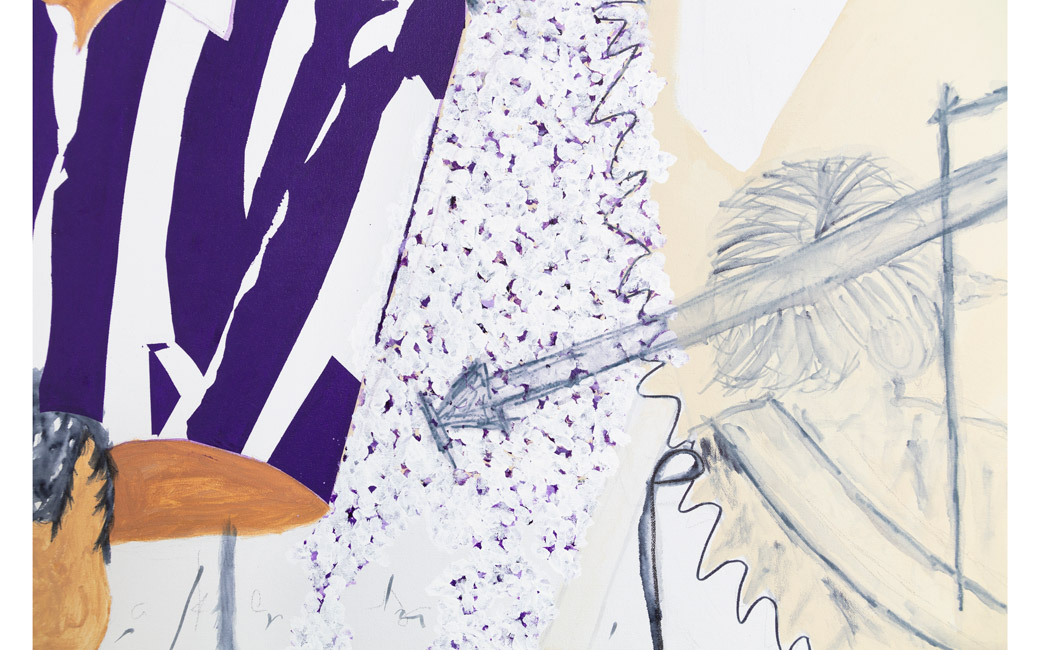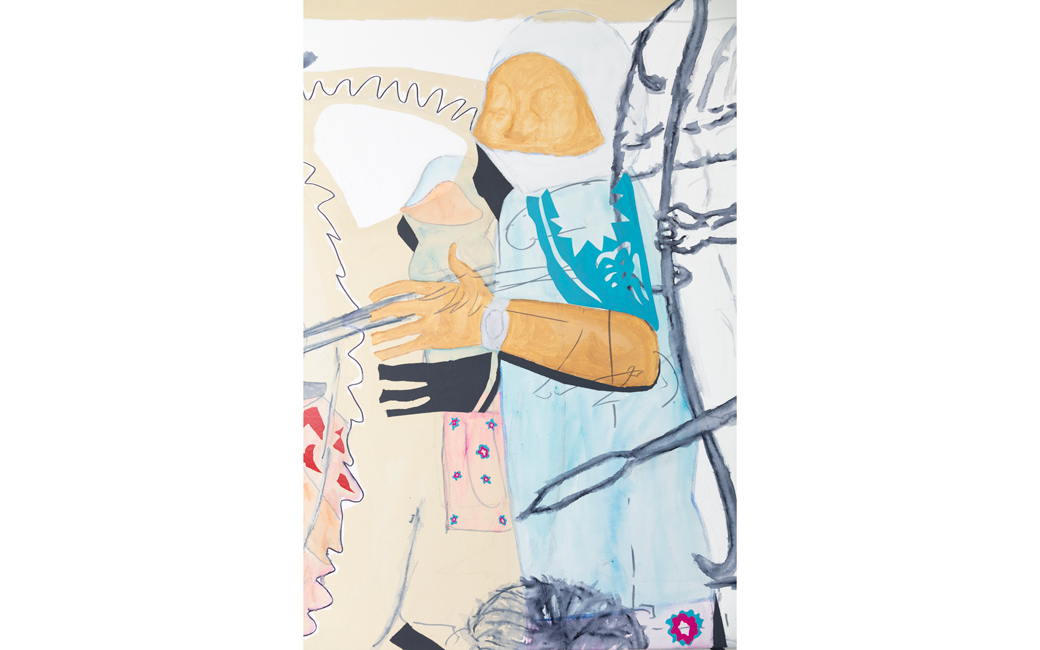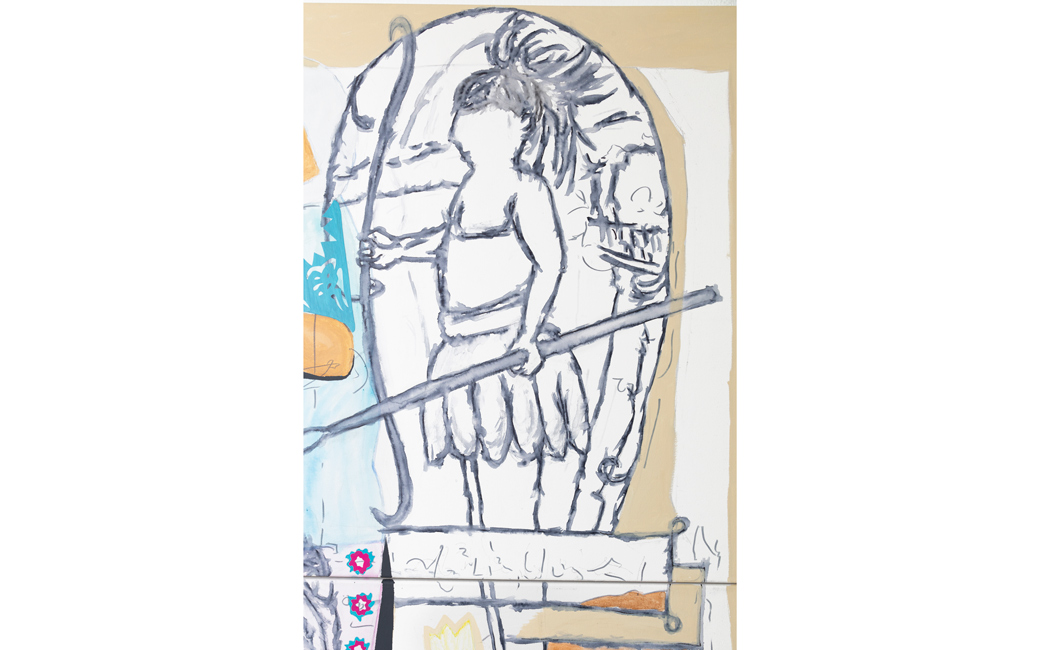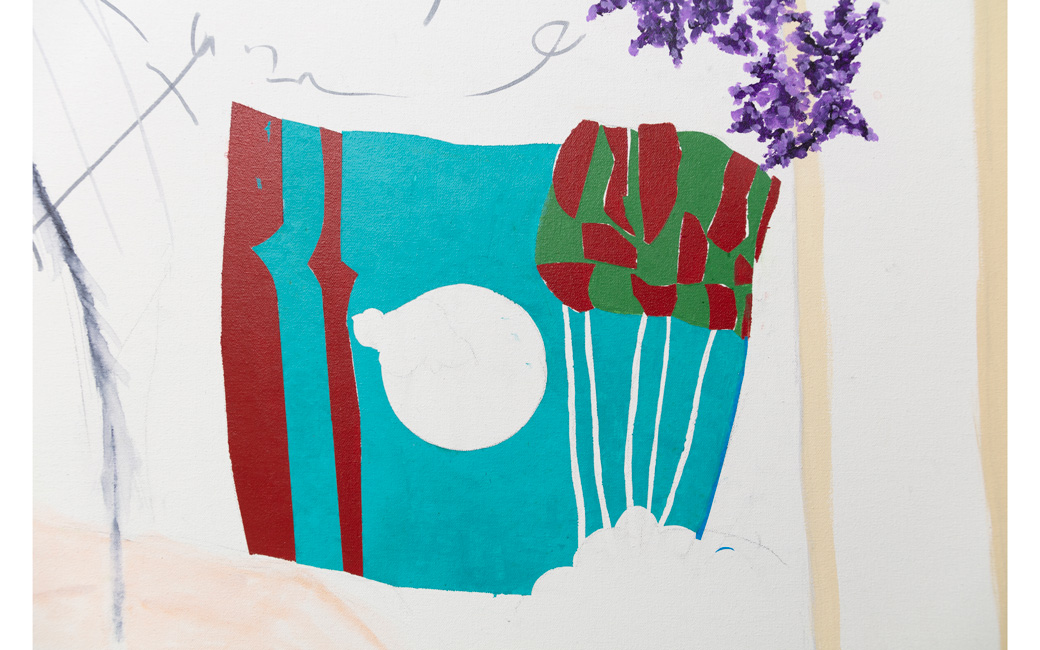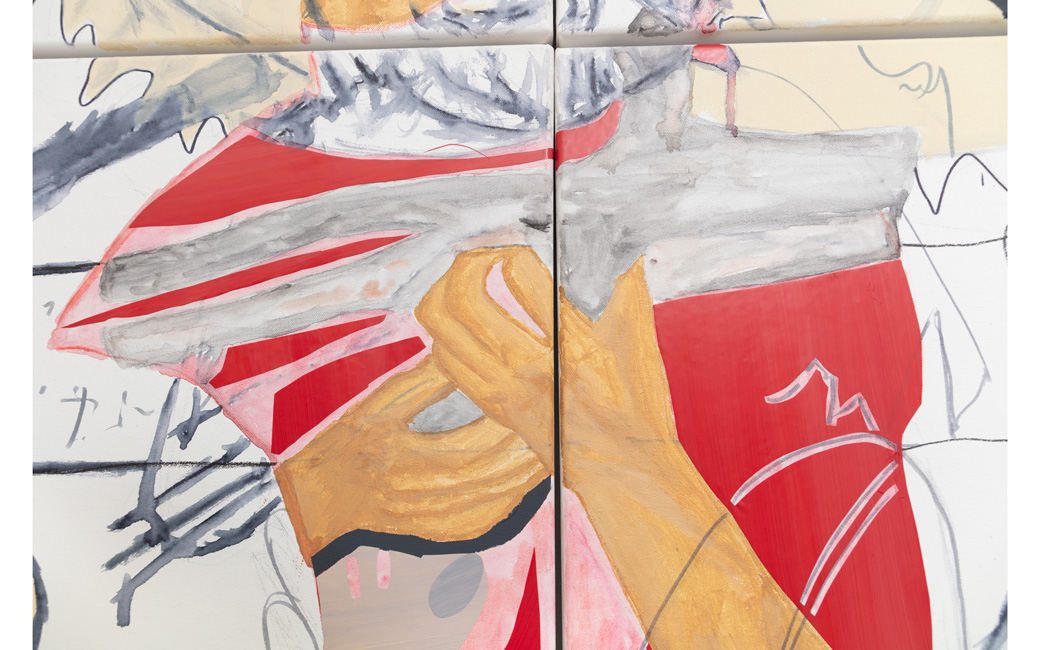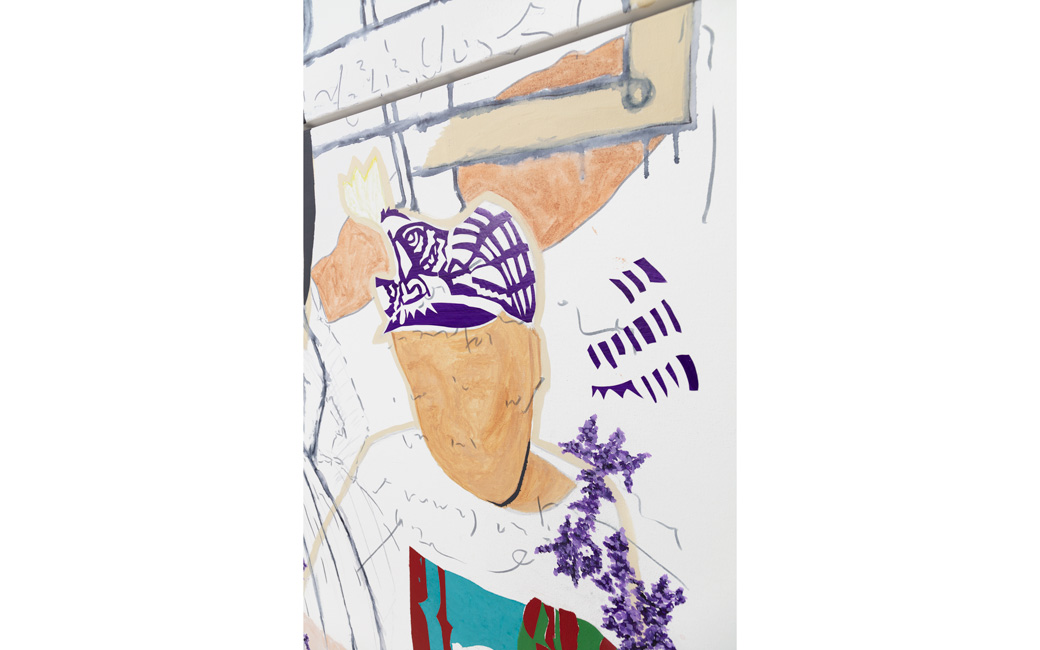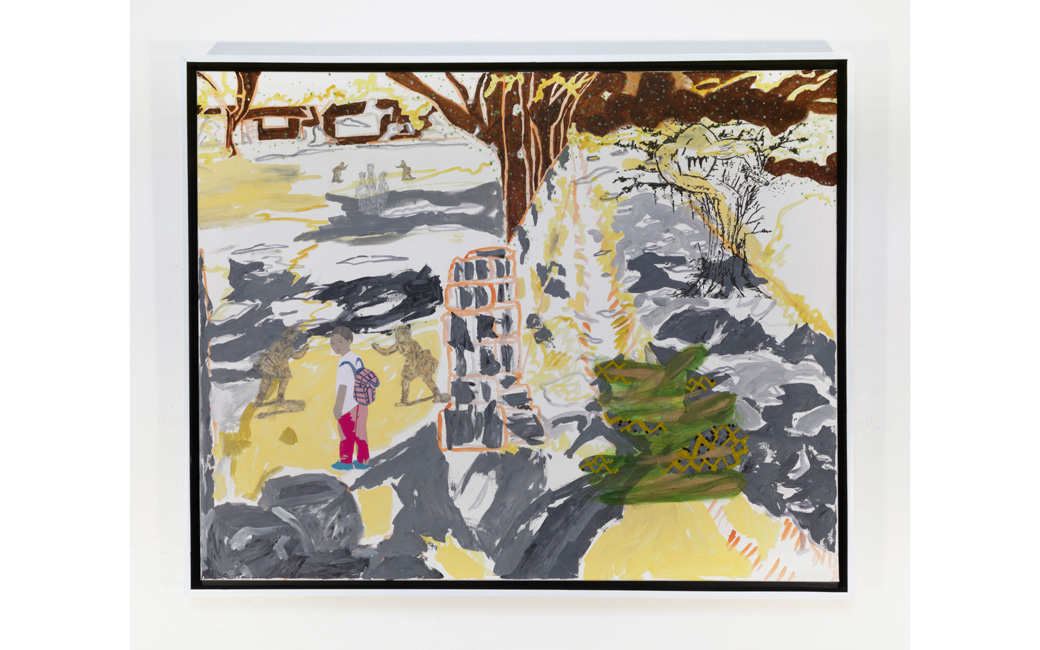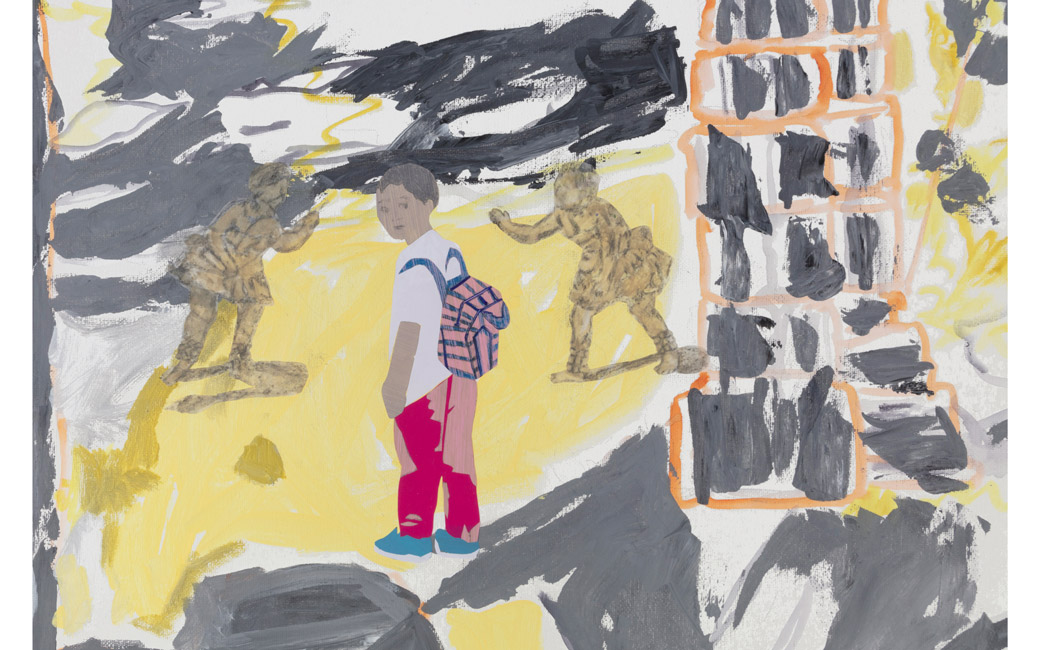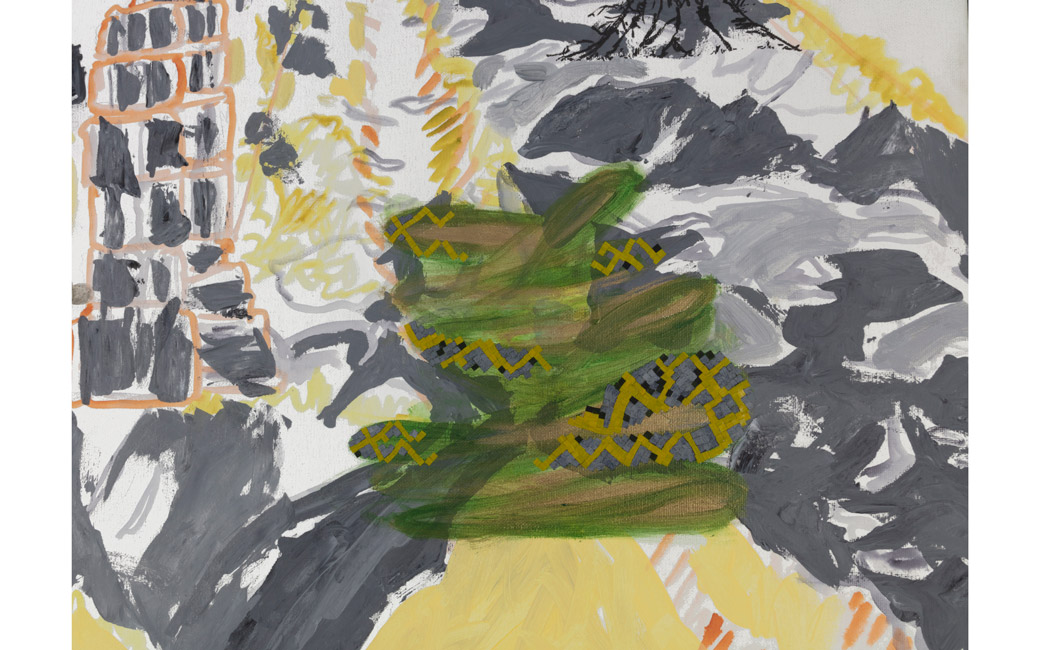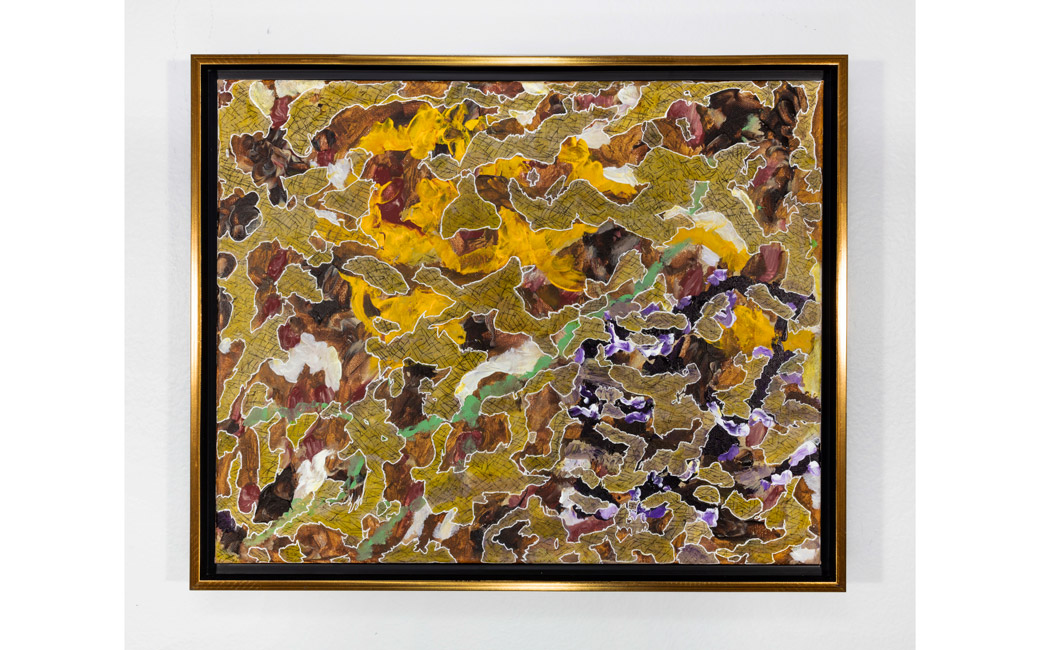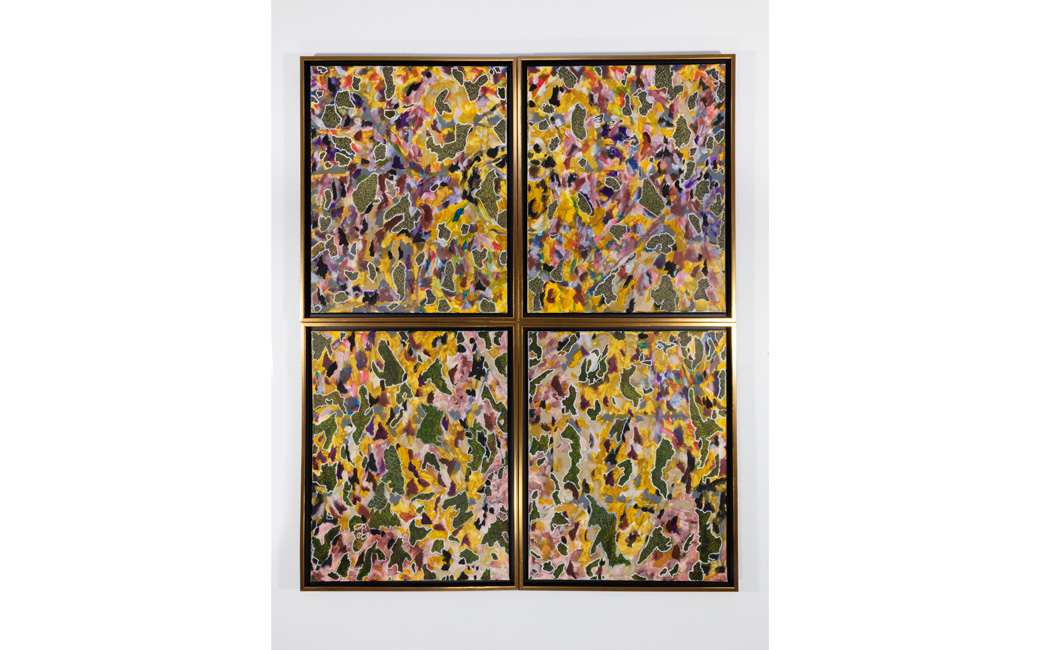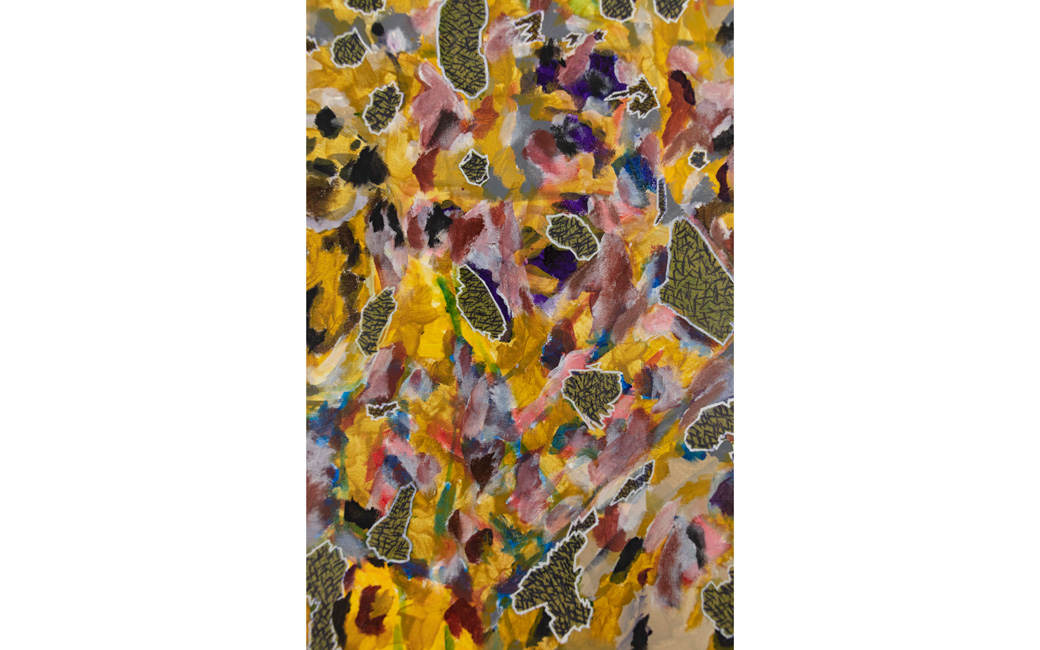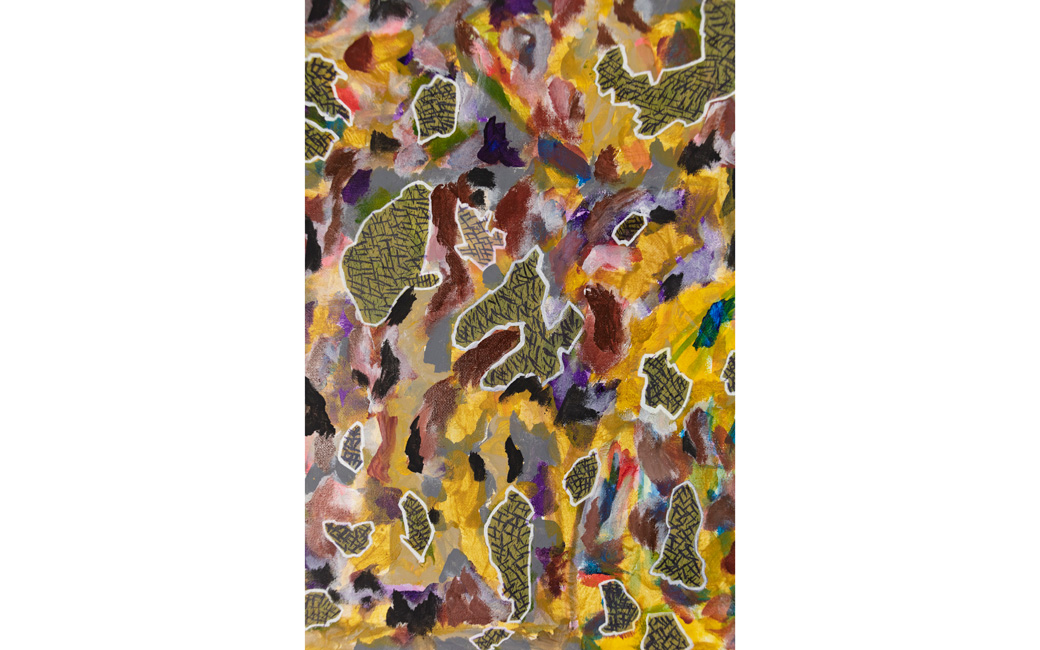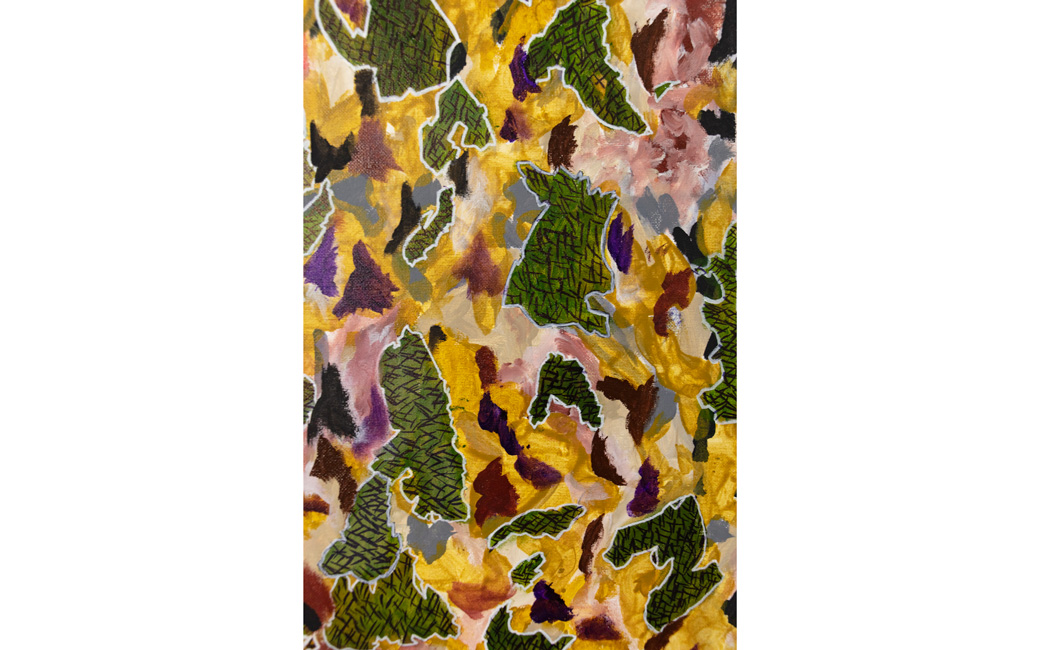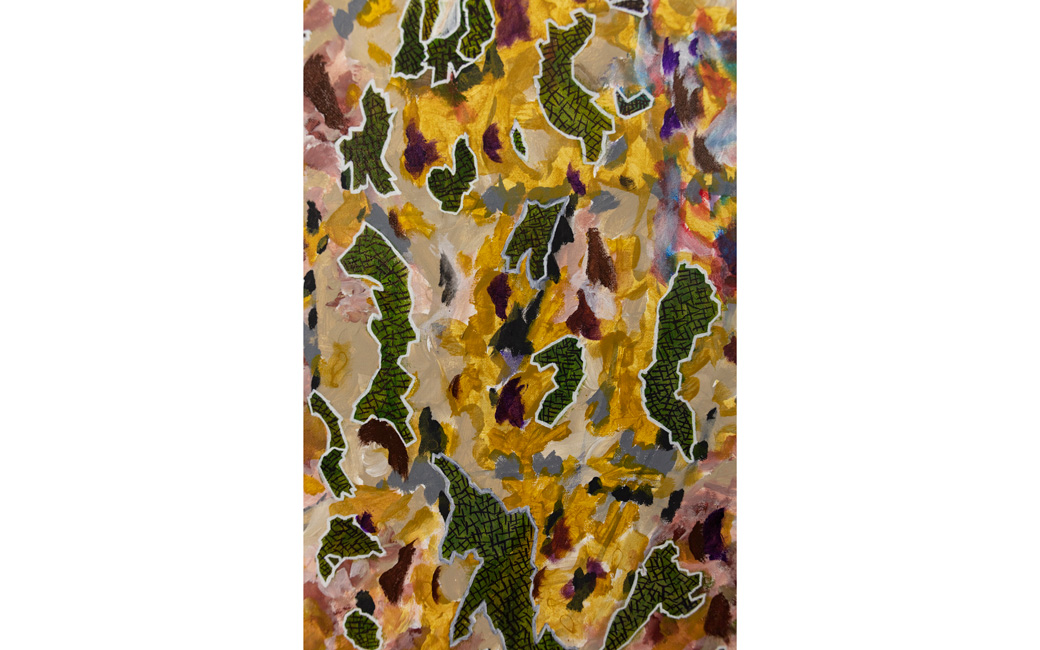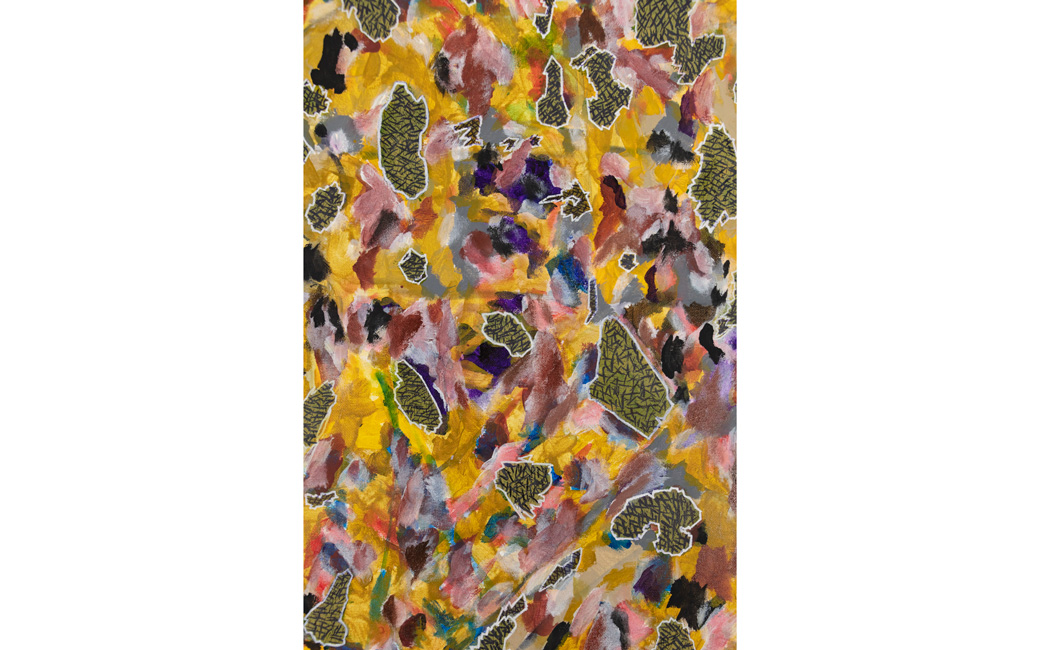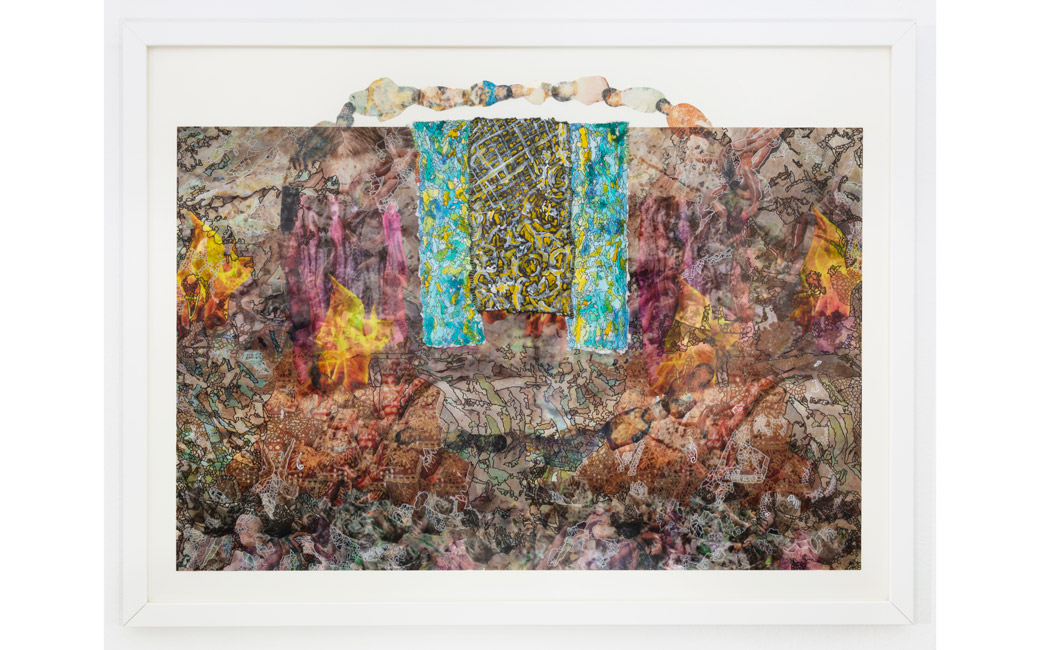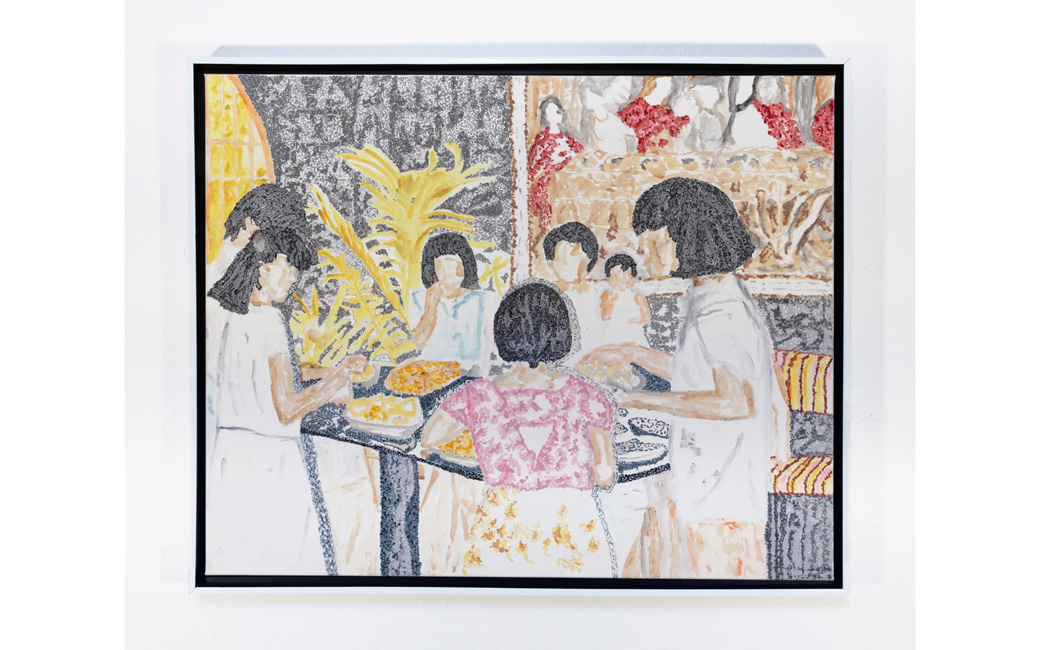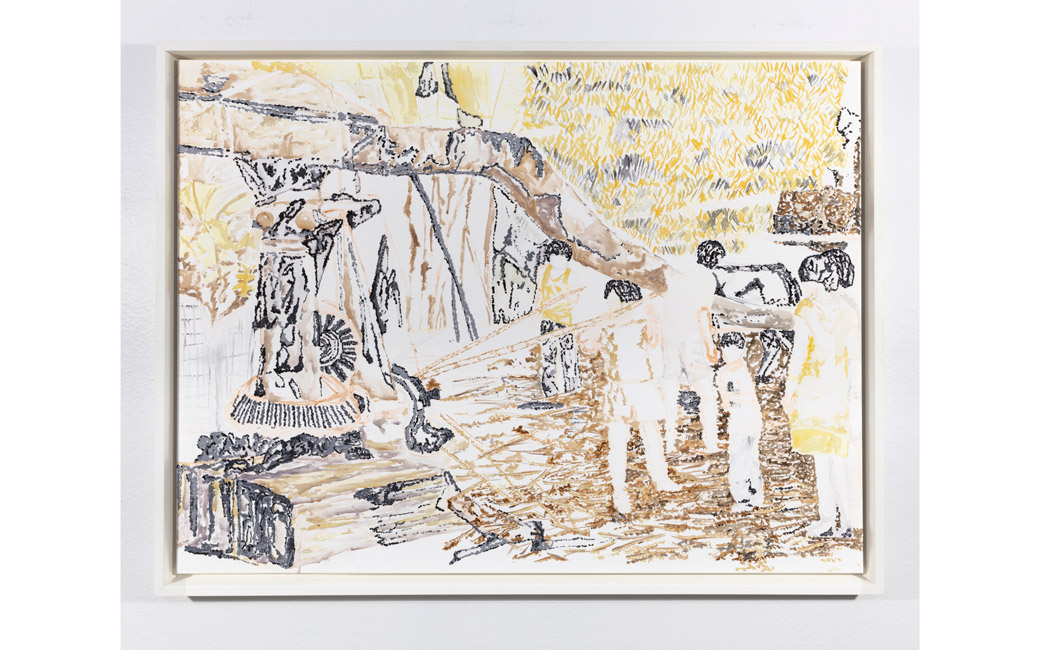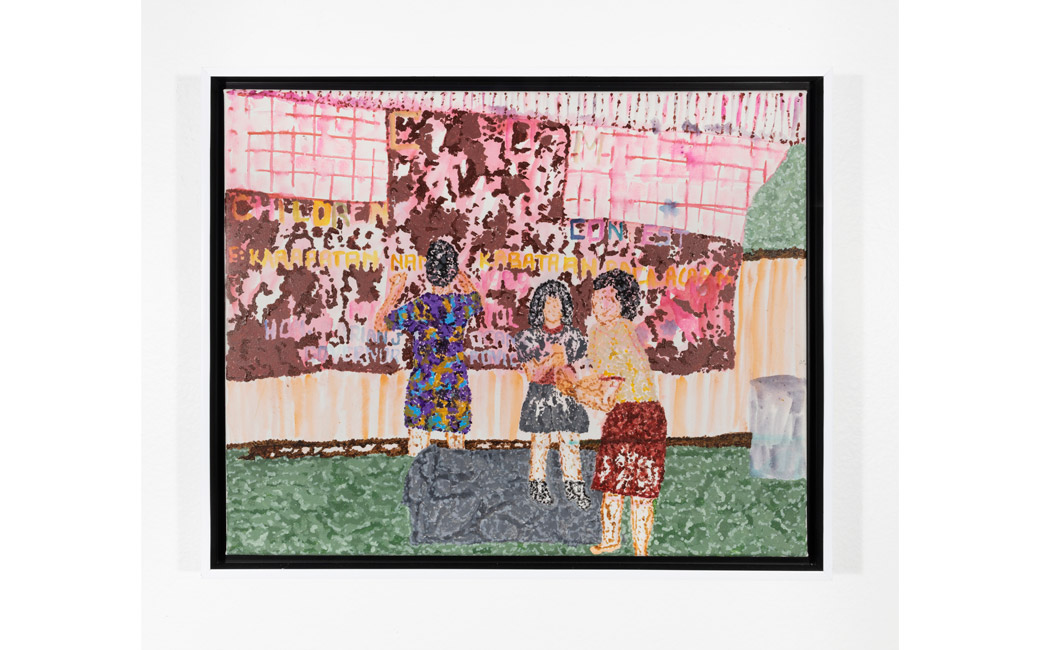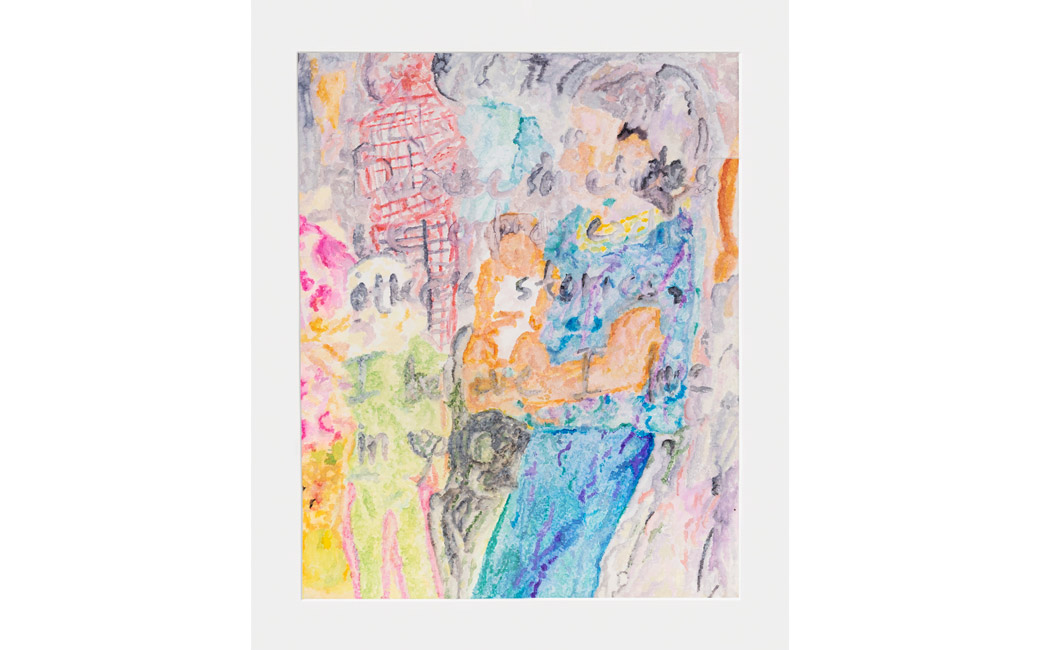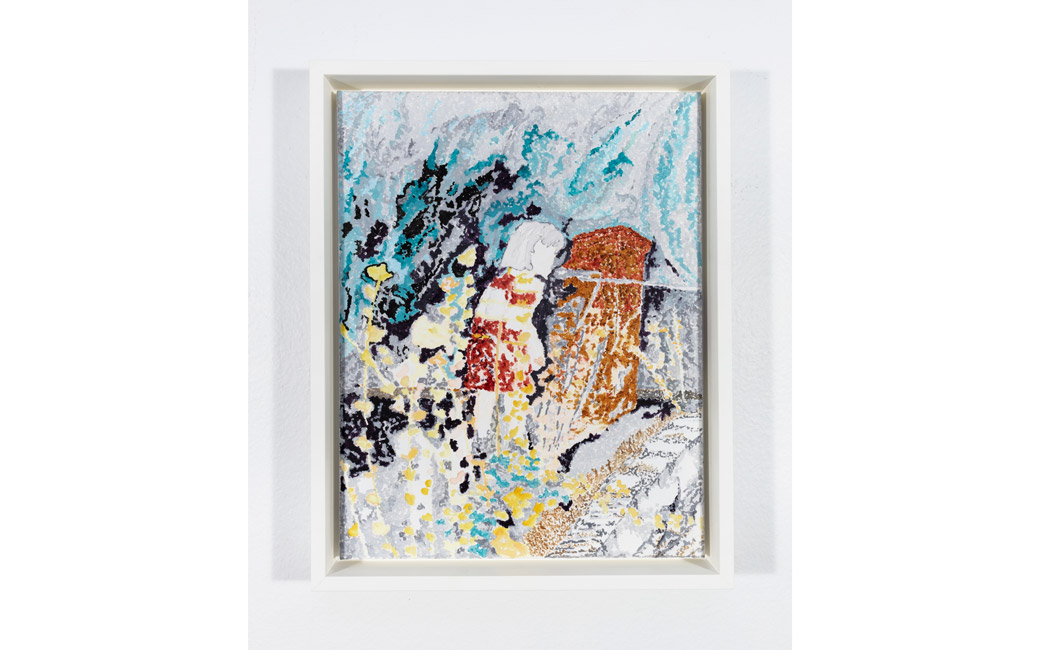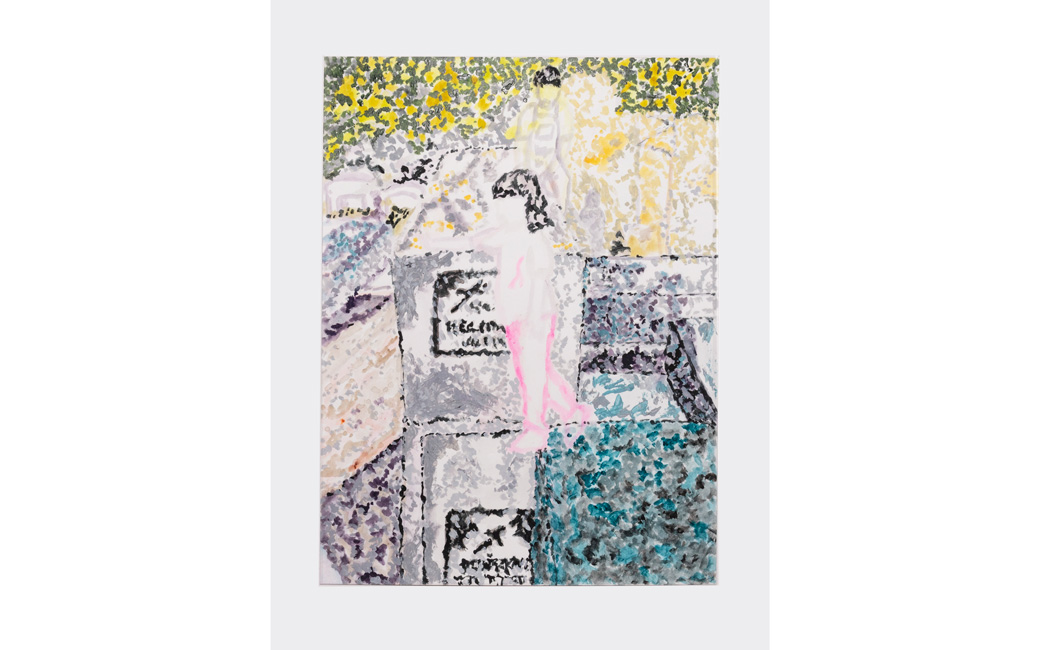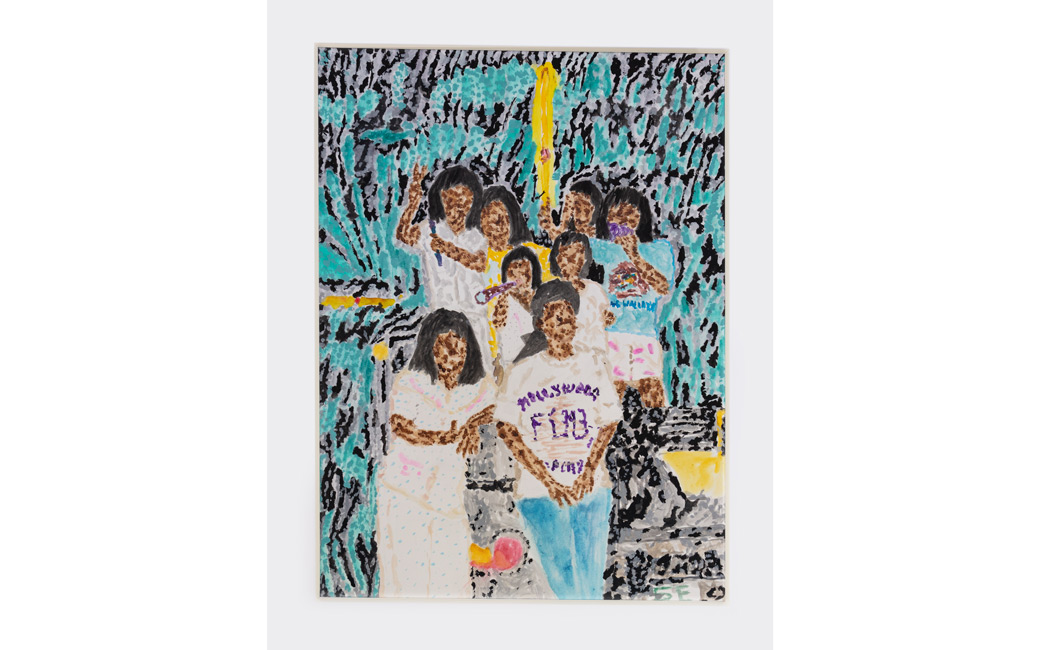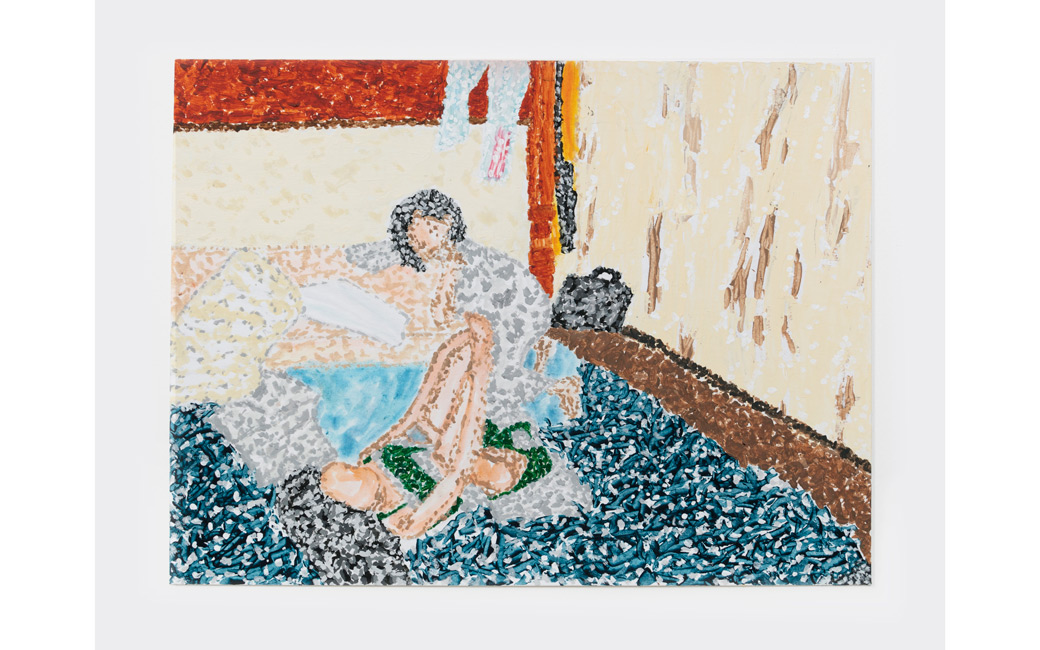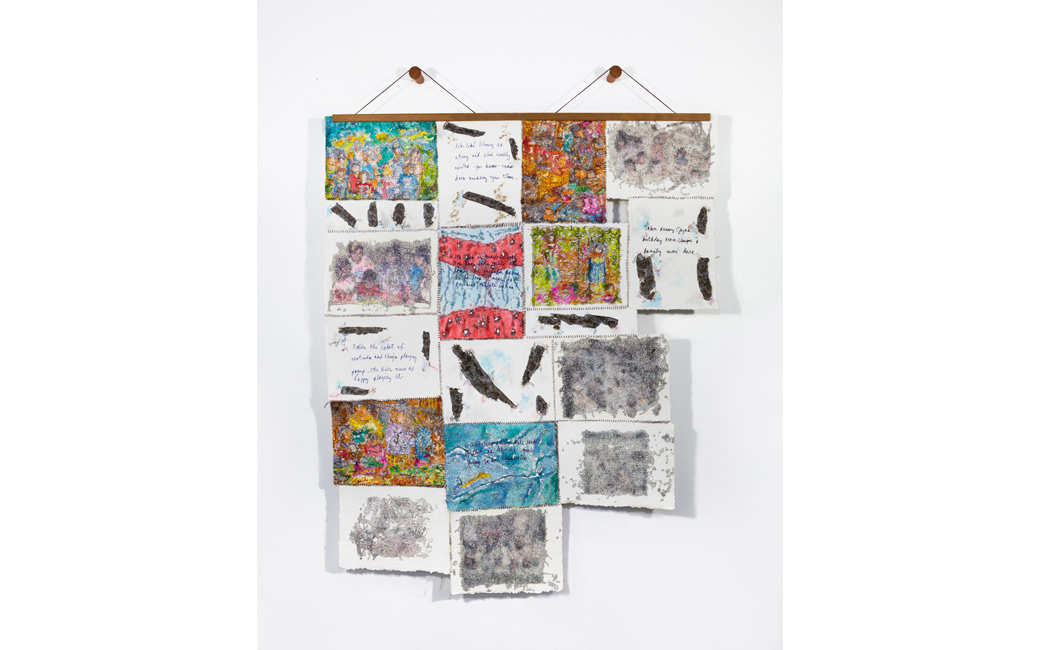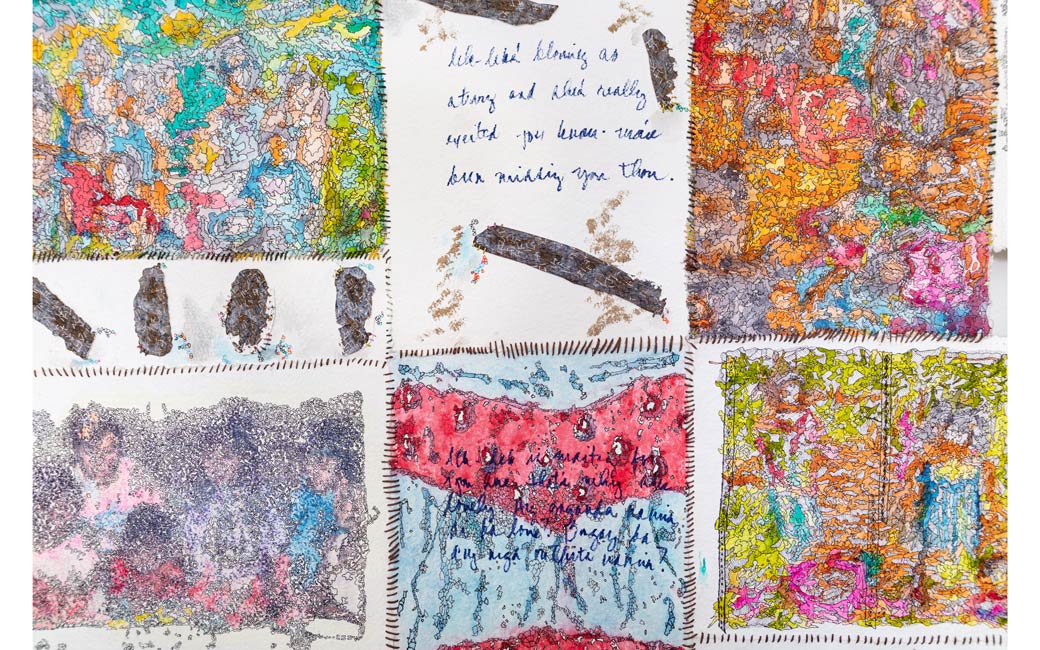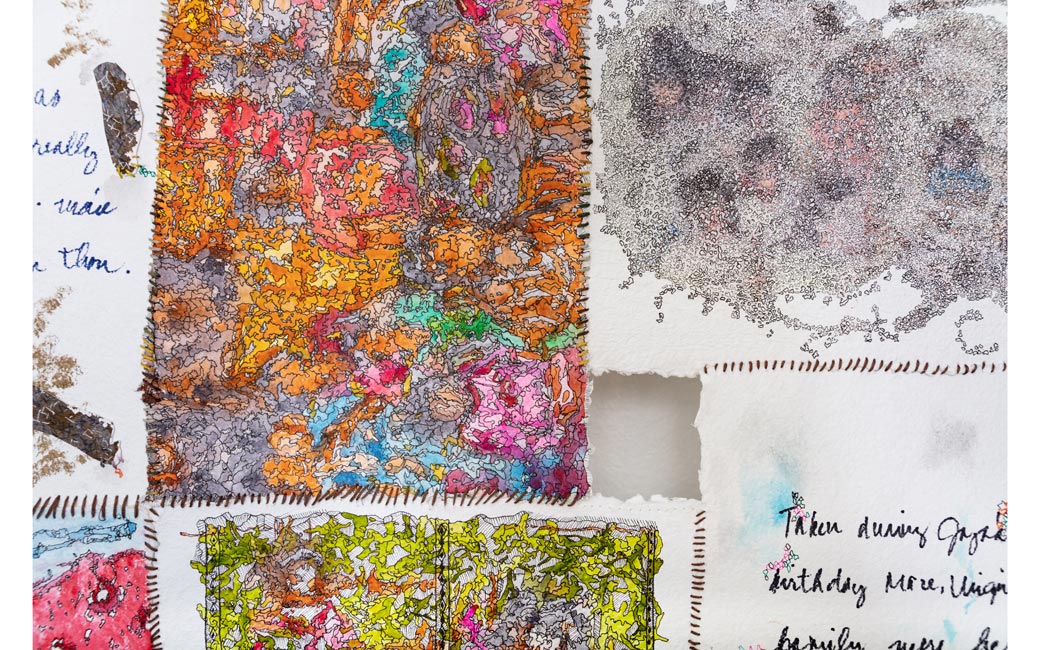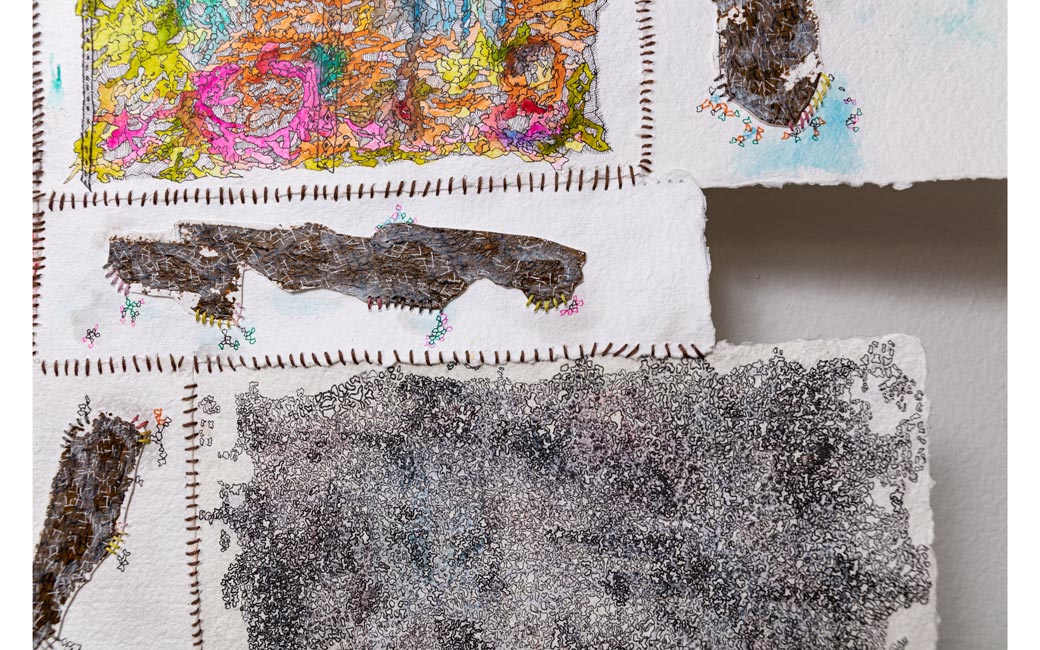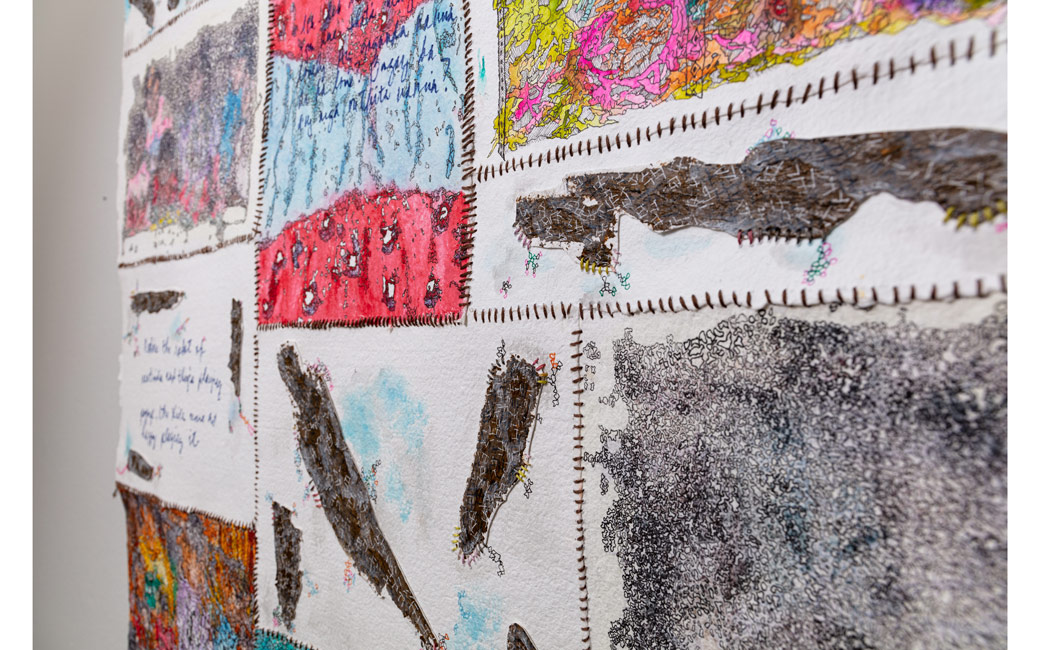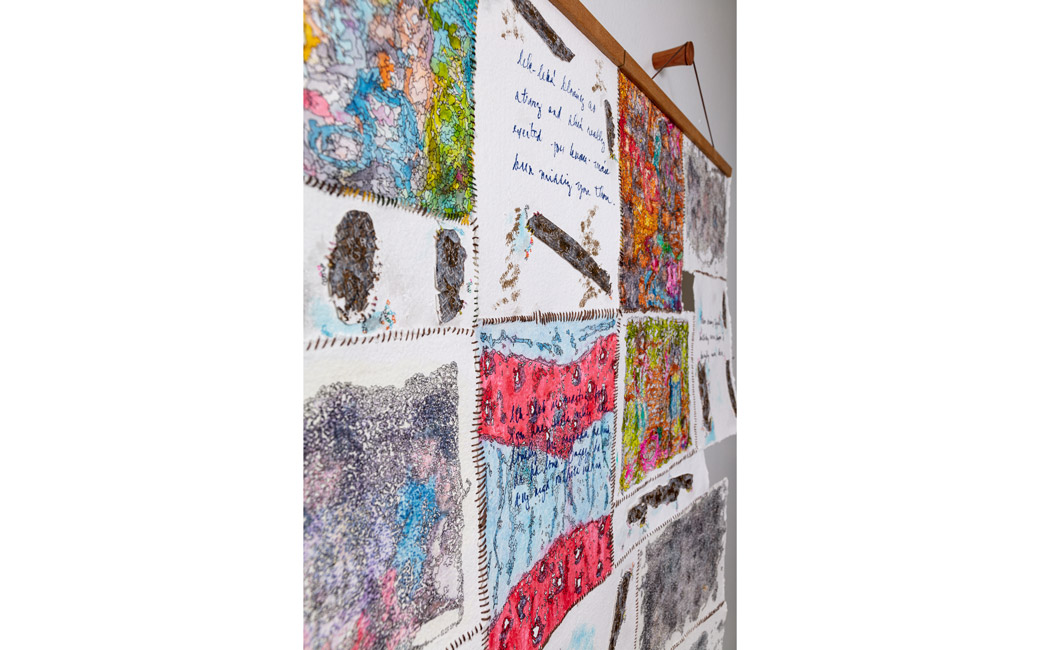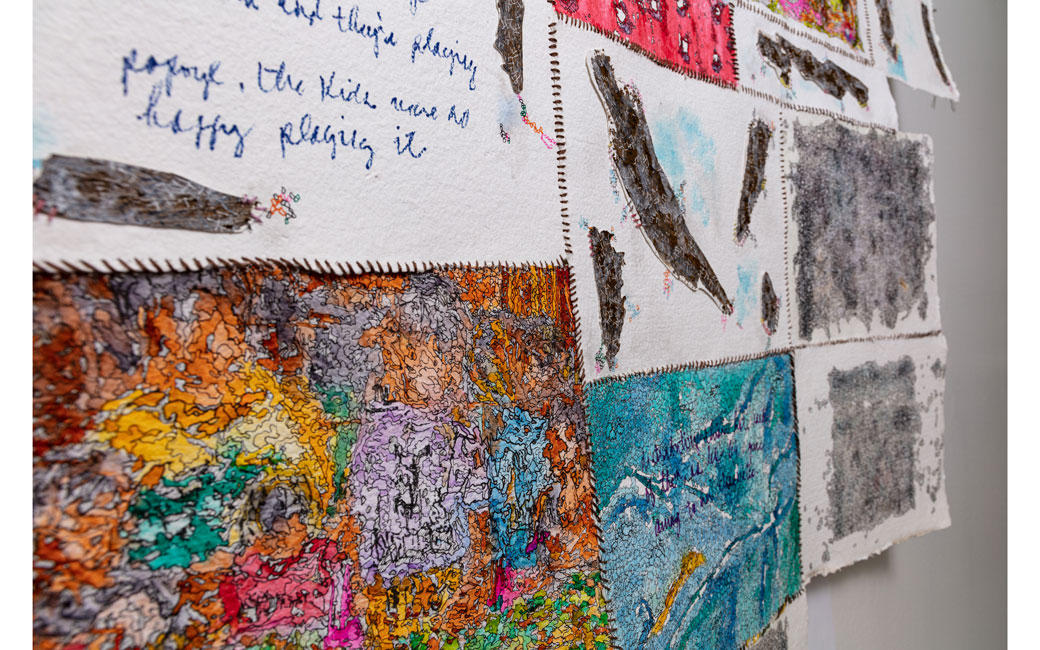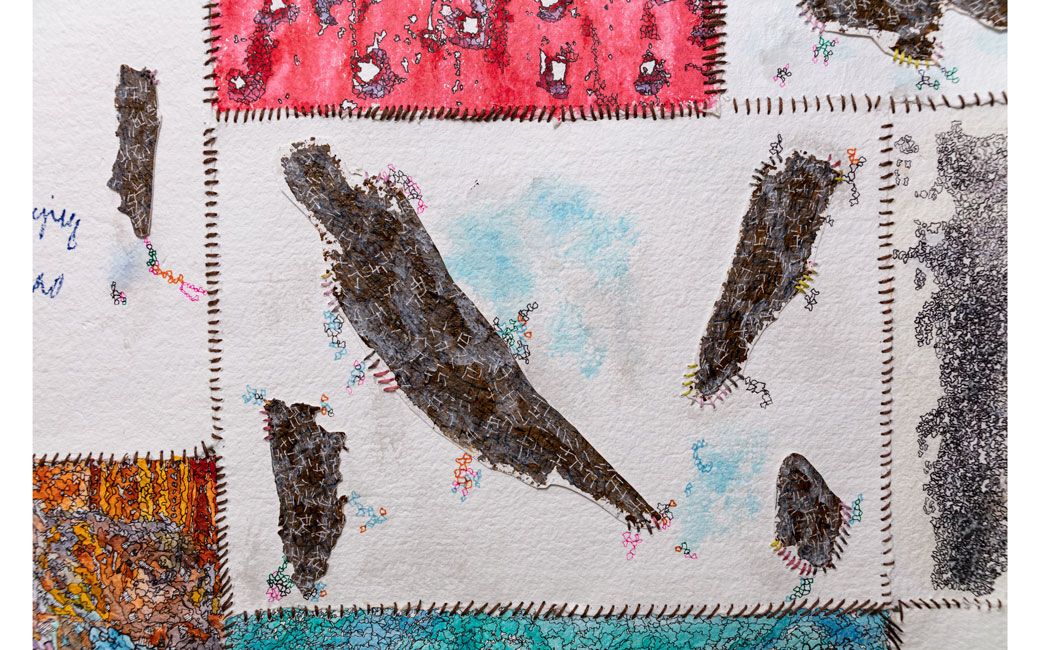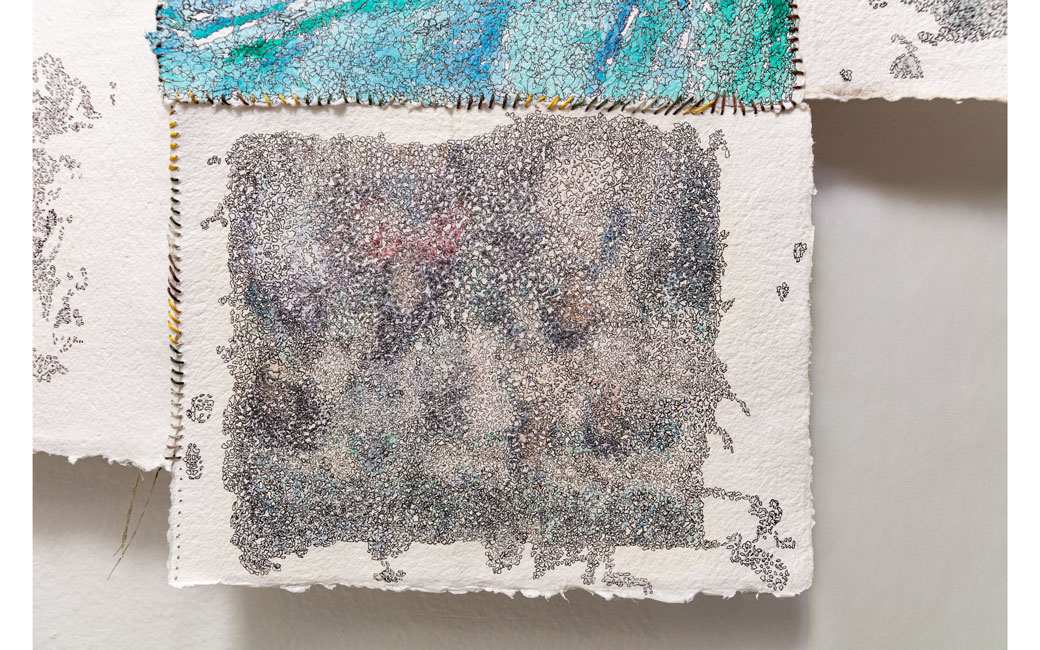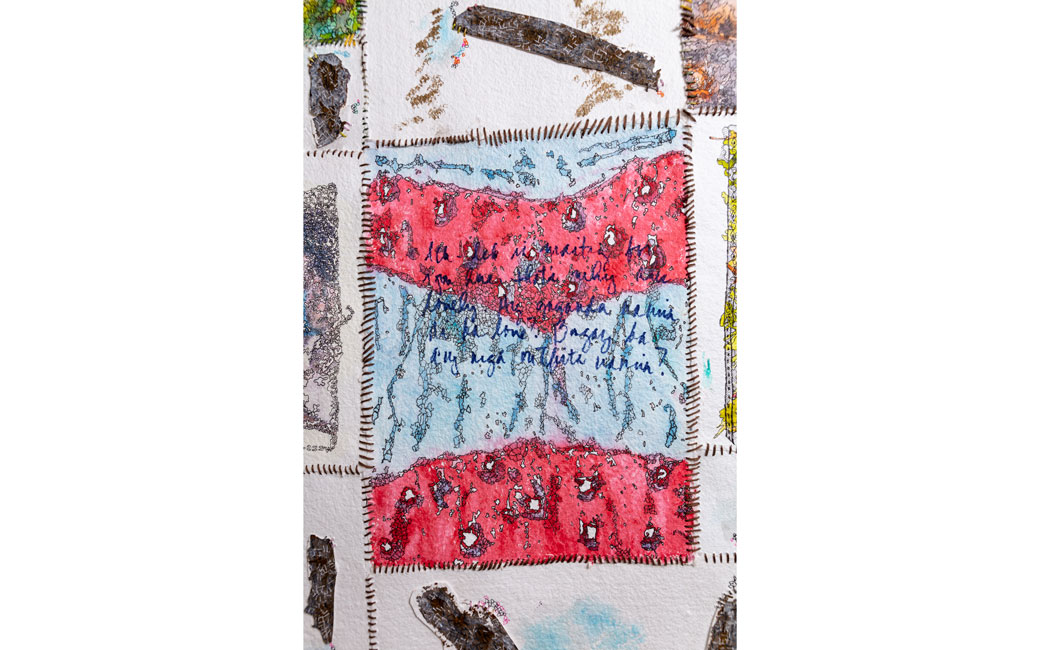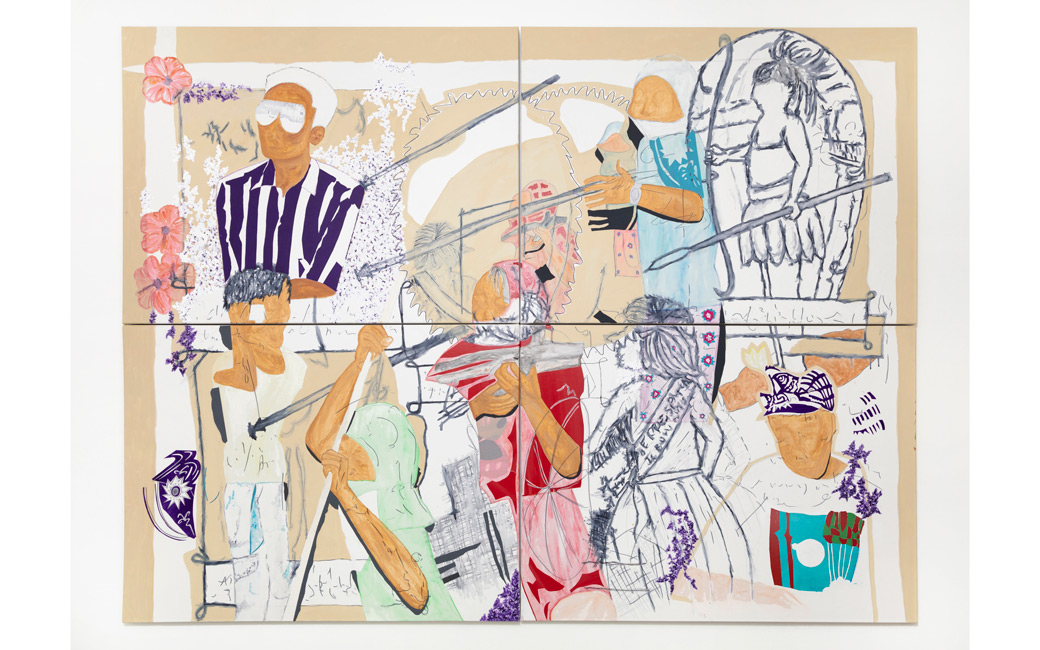
Anak (My Child)
Lek Vercauteren Borja’s mixed media works explore the personal and social impact of Spanish colonization and American imperialism on the Filipino experience.
Lek Vercauteren Borja uses art to better understand her memories of displacement and their effect on shaping her as a person. Her current body of work explores the intersection of her biography and the history of the Philippines: It looks at the development of Filipino culture from the pre-colonial era to the present, reimagines how the cultural stratification of Philippine society came to be, and explores the lingering effects of Spanish colonization and American imperialism on the archipelago’s native population.
“ I'm trying to figure out what it means for the family to inherit the consequences of the history of their country, as well as what it means to be the child that inherits the psychology of her family, a psychology that has been shaped by that history. ”
Watch Lek Vercauteren Borja and other Filipino American artists including poet, Luisa A. Igloria, and authors E.J.R. David and Dwight Ong. Scholar discuss the Filipino Diaspora with moderator and artist Marlo De Lara.
Exhibition Artwork
Expansion, Before and After
2020
Acrylic, marker, graphite, vinyl on canvas
72"H x 96"W x 2" D
My works generally mix elements of my autobiography with the history of the Philippines- a way to think about how individual, social, or cultural formations are created as an outcome of these histories. This piece considers how these formations develop and persist through time.
The philosophy of fragility is something I think about in my work, so I often use photographs from my childhood as sources for my paintings — pointing to a past that is, perhaps, a more delicate time.
In this painting, I reproduced racist illustrations of Filipinos as savages, published in American papers like the Boston Globe (after the Spanish American War). In this work are also images of my cousins and I assuming the characters of the Teenage Mutant Ninja Turtles — an American cartoon show that was broadcast all the way to our baryo — seeing the reaches of the U.S. and the persistence of imperialism, in the lives of different generations of Filipinos.
Kapre sa Baryo (Kapre in the Barrio)
2020
Acrylic, marker, graphite, collage, vinyl on canvas
24"H x 30"W
This work investigates the origins of the kapre myth in Filipino folklore and its presence in the lives of Filipinos. Figures referred to as “Cafres” in Pedro Murrillo Verde’s Carta Hydrographica y Chorographica de la Yslas Filipinas (1734) are reproduced and an illustration of its more modern representation are situated in an abstracted landscape of the baryo in the Philippines where I grew up.
Banana Leaves
2020
Acrylic, ink, marker on canvas
16"H x 20"W
False Idols 2 (231 years apart: George Washington and Manny Pacquiao)
2020
Ink, marker, acrylic on canvas
40"H x 32"W (4 panels of 20"H x 16"W)
This piece references images of Manny Pacquiao in a victory parade in Makati City, Philippines after defeating the American boxer, Chris Algieri for the welterweight title (Nov. 23, 2014), and a painting of General George Washington on his horse triumphantly entering New York City after the end of the American Revolutionary War (C. Inger, Nov. 25, 1783).
False Idols 1
2019
Ink, watercolor, marker, photo printed on transparency paper, digital collage, thread
30"H x 40"W
This piece is meant to communicate both a veneration of and contempt for relics. It incorporates a collage of the Santo Niño’s (Child Jesus’) regalia and other images associated with its worship. The Santo Niño is one of the most beloved Filipino cultural icons and the oldest Catholic relic in the Philippines, which was brought by Ferdinand Magellan. Photographs from my childhood are reproduced digitally or as painted abstractions that are cut then sewn into the piece. This piece also includes cut-out photos of my family members.
Personalia Series
As an immigrant who did not come to the U.S. with much except clothes and other necessities, I return to our family photo album frequently to remember the stories of my family. The Personalia series uses photos of my childhood in the Philippines as reference. This series is a way to contemplate on how the family album serves as a critical instrument to reflect on the past, our culture, and the formation of my identity.
Fractured Family
2020
Watercolor, ink, photo transfer on rice paper, thread
51"H x 42"W
This piece is a continuation of the Personalia series, which references photos of my childhood in the Philippines, but is created upon a larger world of memories and past events. I had my mother rewrite notes on the back of photos she sent to family members.
About the Artist
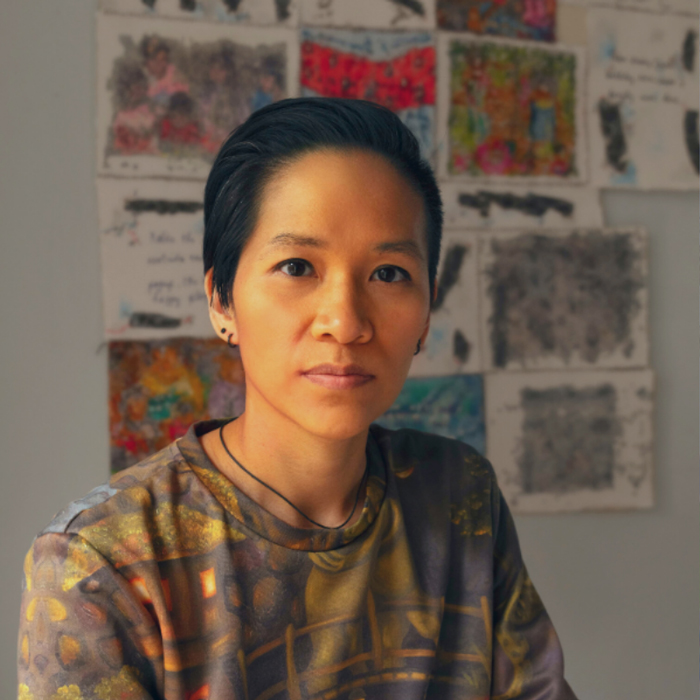
I want to form ideas of who I am
into being—
every seemingly authentic and artificial part I embody
and recognize—until I touch or see before me the awareness of who I am
made into being—
The Filipino
The American
The Filipino American
The privileged
The Other
The person
The human being
— Lek Vercauteren Borja
Lek Vercauteren Borja emigrated from the Philippines to the U.S. with her family at the age of ten. She has received degrees from the Maryland Institute College of Art and Antioch University, Los Angeles. Her work has been featured in numerous exhibitions on the East and West coasts of the U.S. and in Puerto Rico.
Anak (My Child) exhibition photos by Amelia Vercauteren Borja.
The Asian Arts & Culture Center appreciates the generous support of The E. Rhodes & Leona B. Carpenter Foundation, Maryland State Arts Council, William G. Baker, Jr. Memorial Fund, Central Baltimore Partnership, AA&CC Members, TU College of Fine Arts & Communication, Yoshinobu & Kathleen Shiota, Citizens of Baltimore County, Ro & Marius P. Johnson Legacy Charitable Fund, Harold J. Kaplan Foundation, The Max and Victoria Dreyfus Foundation, TU COFAC Diversity Committee, TU Marketing & Communications, Robert Mintz & Beth Arman, Anthony & Bonnie Montcalmo, Alexander Nagel, Connie Rosemont & Jon Greenberg, and TU Center for Student Diversity.
